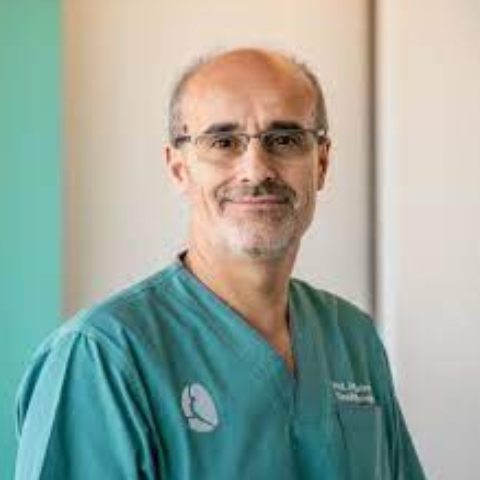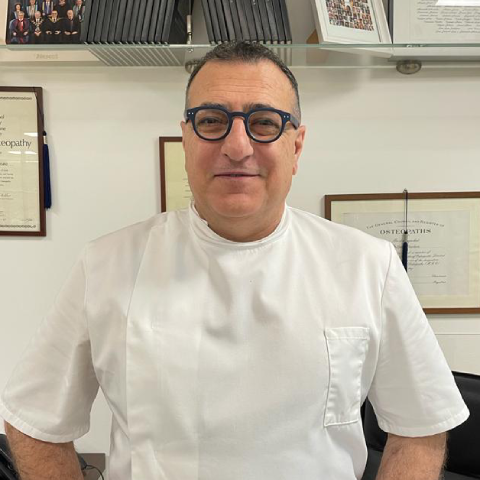Advanced osteopathic manipulative techniques to the spine and pelvis: a clinical approach
- IN PROGRESS
- In Progress


Introduction
Welcome to the three-day course on “Advanced Osteopathic Manipulative Techniques to the Spine and Pelvis: A Clinical Approach” presented by Jorge Esteves and Alfonso Mandara. As osteopathic care continues to evolve in the 21st century, it is still crucial to recognise the significance of hands-on care. In this course, we will explore the physiological and mechanical responses to manual therapy, the environmental, psychological, and social factors that can impact a patient’s response to osteopathic care.
Patient safety is paramount in clinical practice, and this course will delve into the importance of patient screening, cervical spine risk assessment, absolute and relative contraindications. We will also examine the clinical reasoning that informs the application of osteopathic manipulative techniques and discuss developing a person-centred plan of osteopathic care through case studies.
- Osteopathic care in the 21st Century: why hands-on care still matters!
- Physiological and mechanical responses to manual therapy
- Contextual factors in clinical practice: modulating the effects of osteopathic care
- Safety in clinical practice: patient screening, cervical spine risk assessment, absolute and relative contraindications
- Clinical reasoning informing the application of osteopathic manipulative techniques
- Developing a person-centred plan of osteopathic care: case studies
- Advanced osteopathic manipulative techniques to the cervical, thoracic, and lumbar spine and pelvis. The anatomical regions that will be covered during the practical part of the course include:
- Cervical Spine
- Thoracic spine and costovertebral and costotransverse joints
- Lumbar spine
- Sacro-iliac joints
Learning objectives
- Understand the importance of hands-on care in the context of osteopathic care in the 21st century.
- Critically evaluate the physiological and mechanical responses to manual therapy and its relevance to osteopathic care.
- Analyse contextual factors that impact osteopathic care and modulate its effects on patients.
- Develop safe screening procedures and risk assessments for patients receiving osteopathic care.
- Apply advanced osteopathic manipulative techniques to the spine and pelvis, informed by clinical reasoning and person-centred care planning.
As an osteopath and cognitive scientist specialising in chronic musculoskeletal pain, Professor Jorge Esteves is a passionate advocate for evidence-informed, person-centered care. Currently, he serves as a Professor of Osteopathy and Vice-Principal at Malta ICOM Educational, an Honorary Professor at the University College of Osteopathy in London, and a researcher with Collaboration for Osteopathic Medicine Research in Italy.
His research interests center around the reconceptualisation of osteopathic care within
the frameworks of enactivism and active inference. To this end, he critically evaluates theories and research from enactivism, embodiment, ecological psychology, free energy principle, predictive coding, interoception, and allostasis, with a particular focus on chronic pain and persistent physical symptoms, and the neurophysiological and psychological effects of affective touch.
Professor Esteves is dedicated to advancing the field of osteopathy through rigorous scientific inquiry, and to developing innovative, effective treatments that empower patients to achieve optimal health and well-being.
Alfonso Mandara obtained his Diploma in Osteopathy from the European School of Osteopathy in Maidstone (UK) in 1993, and later earned his bachelor’s degree from the University of Wales. He returned to Italy to devote himself to private practice, research, and teaching, and became one of the founders and General Director of the fist full-time college in Italy.
With a growing passion for osteopathic care and a tireless dedication to his numerous patients, Alfonso gained the respect and collaboration of physicians and hospital executives, which ultimately led to establish the International College of Osteopathic Medicine (ICOM) in 2007.
Today, Alfonso Mandara serves as the Principal of the highter education Istitute – Malta ICOM Educational, and he is also the President of the Italian Osteopaths Federation (FeSIOs).
As a pivotal figure in the development and regulation of osteopathy, Alfonso collaborated with the World Health Organization (WHO) in the drafting and approval of the “Benchmark for osteopathic training” document, which was published in 2010. He also worked closely with important European Professional Associations to help recognise the osteopathic profession in Italy.
Today he is fully dedicated to the international grow of Malta ICOM Educational in many countries around the world.
Osteopaths
Certificate of continuous professional development (CPD) issued by Medi-Cine Online Learning Academy
40
24 h
3 days - 1 Module
On completion of the course, participants will not be entitled to call themselves osteopaths without the possession of professional license or registration as osteopaths from a competent healthcare regulatory authority. The course tutor will not be responsible for damage caused by participants to colleagues during the course or subsequently to their patients in clinical practice.




